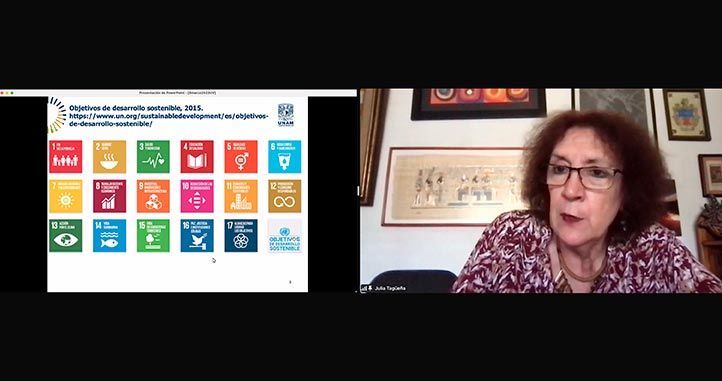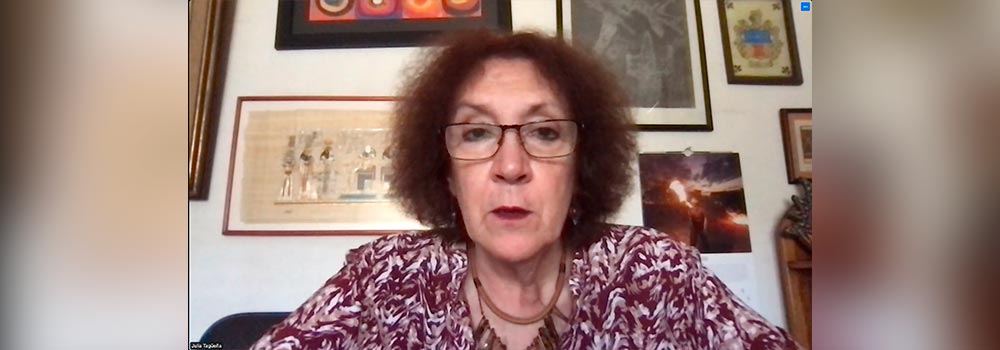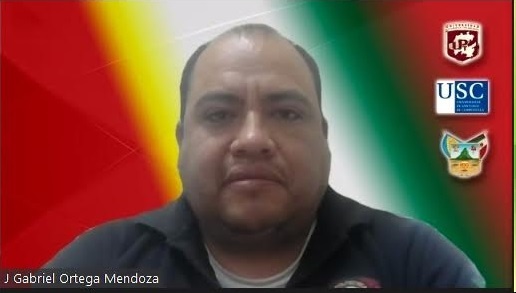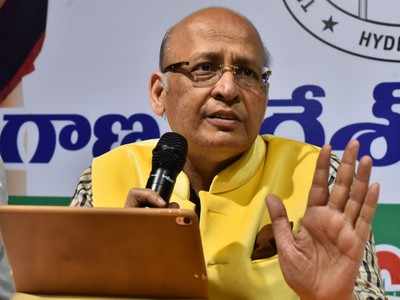- The researcher at UNAM declared that gender equality is essential to achieving the sustainable development goals of the 2030 Agenda of the United Nations Organization
- He suggested eliminating prejudices about certain disciplines as being gender-oriented
Julia Taguina is a researcher at the Institute for Renewable Energies and a science publisher
Carlos Hugo Hermida Rosales
Photographer: Luis Fernando Fernandez
03/14/2023, Xalapa, Ver.- “Gender equality is essential to achieving the Sustainable Development Goals (SDGs) of the United Nations 2030 Agenda,” said Julia Taguina Parga, a researcher at the Institute for Renewable Energies of the National Autonomous University of Mexico (UNAM). , who delivered a virtual lecture entitled “Science, Women and 8 Meters”, within the Physics Symposium conducted by the University of Veracruzana (UV) through the Faculty of Physics.
In this talk held in celebration of International Women’s Day, Julia Taguina pointed out that in addition to being number 5 of the Sustainable Development Goals, gender equality is a human right that should permeate the remaining 16.
She explained that women around the world face horizontal and vertical discrimination, whether in the academic or professional field.
Horizontal discrimination refers to the unequal distribution of men and women in the jobs they perform in society, and one manifestation of it is that not all university degrees address gender equality.

The researcher pointed out that gender equality is the goal of sustainable development No. 5 of the United Nations
For its part, vertical discrimination is exposed to the weak presence of women in managerial positions in business administration where important decisions are taken.
The researcher stated that it is necessary to fight this segregation and implement procedures in order to eliminate the biases that dictate that the various disciplines of knowledge be directed to a certain gender.
He stressed that “it is necessary to fight against patriarchal societies and the problems of manhood through academic and scientific fields, in order to obtain a promising and sustainable future.”
Julia Taguina stressed that the promotion of scientific professions is an essential mechanism to motivate girls and adolescents to study, and that journalism and scientific communication play a fundamental role in this.
He declared the search for gender equality in Mexico to be a very modern struggle, and gave as an example that women could not go to the polls to cast their ballots until 1955.
She called for an investigation into the trajectory and achievements of Mexican researchers, as she asserted that science is “something that the women of the country have developed in an excellent way.”
Categories: events, general, comprehensive, main





